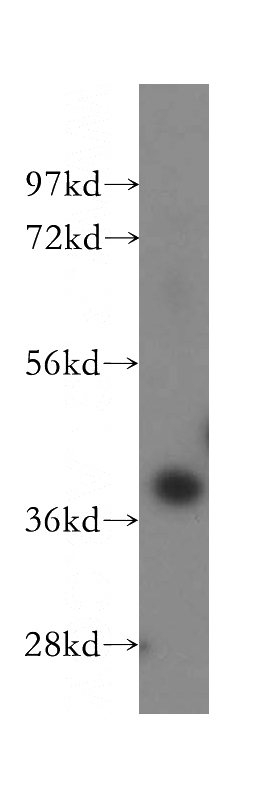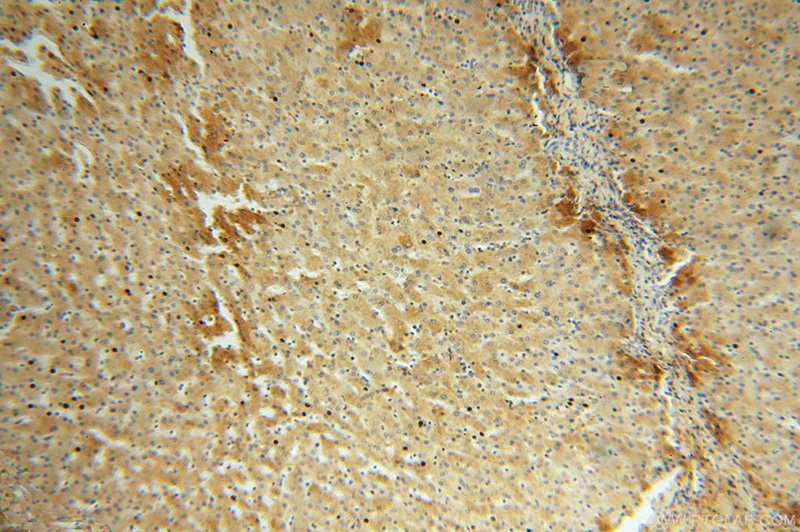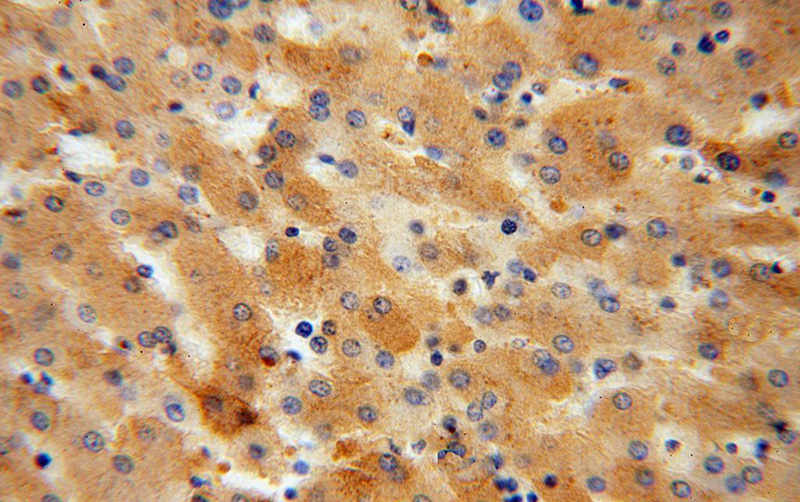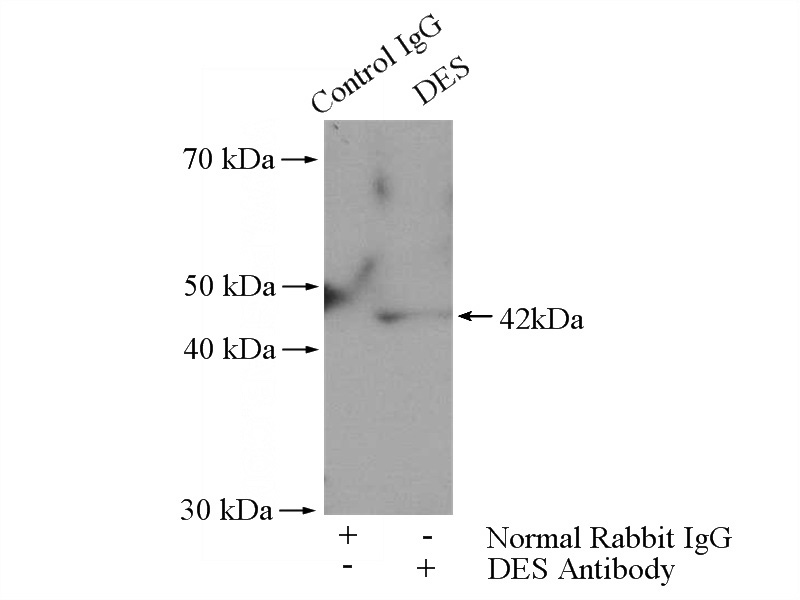-
Product Name
Haptoglobin antibody
- Documents
-
Description
Haptoglobin Rabbit Polyclonal antibody. Positive WB detected in HEK-293 cells, human liver tissue. Positive IP detected in HepG2 cells. Positive IHC detected in human liver tissue, mouse liver tissue. Observed molecular weight by Western-blot: 42 kDa
-
Tested applications
ELISA, WB, IHC, IP
-
Species reactivity
Human,Mouse,Rat; other species not tested.
-
Alternative names
HAPT antibody; Haptoglobin antibody; HP2 ALPHA 2 antibody; HPA1S antibody
-
Isotype
Rabbit IgG
-
Preparation
This antibody was obtained by immunization of Haptoglobin recombinant protein (Accession Number: BC058031). Purification method: Antigen affinity purified.
-
Clonality
Polyclonal
-
Formulation
PBS with 0.02% sodium azide and 50% glycerol pH 7.3.
-
Storage instructions
Store at -20℃. DO NOT ALIQUOT
-
Applications
Recommended Dilution:
WB: 1:500-1:5000
IP: 1:200-1:2000
IHC: 1:20-1:200
-
Validations

HEK-293 cells were subjected to SDS PAGE followed by western blot with Catalog No:111339(HP antibody) at dilution of 1:500

Immunohistochemical of paraffin-embedded human liver using Catalog No:111339(HP antibody) at dilution of 1:50 (under 10x lens)

Immunohistochemical of paraffin-embedded human liver using Catalog No:111339(HP antibody) at dilution of 1:50 (under 40x lens)

IP Result of anti-HP (IP:Catalog No:111339, 4ug; Detection:Catalog No:111339 1:500) with HepG2 cells lysate 2000ug.
-
Background
HP(Haptoglobin) is also named as zonulin and belongs to the peptidase S1 family. HP, a plasma glycoprotein that binds free hemoglobin, has a tetrameric structure of 2 alpha(16 kDa and 9 kDa) and 2 beta(40 kDa) polypeptides that are covalently associated by disulfide bonds. In most species, apart from ruminants, Hp has a molecular mass of 100 kDa, consisting of two subunits of 40 kDa and two subunits of 9 kDa, although in a few species, such as man, genetic variant of Hp forms polymers of higher mass(PMID:2361363). Recent studies of haptoglobin show that certain oligosaccharide structures predominate in different diseases. For example, a highly-fucosylated structure is found in breast cancer and ovarian cancer, highly-sialylated structures in Crohn’s disease and highly branched structures in alcoholic liver disease and fucosylated haptoglobin is a good serum marker for pancreatic cancer.(PMID:16385567).
-
References
- Tan Y, Ma SY, Wang FQ. Proteomic-based analysis for identification of potential serum biomarkers in gallbladder cancer. Oncology reports. 26(4):853-9. 2011.
- Shen H, Heuzey E, Mori DN. Haptoglobin enhances cardiac transplant rejection. Circulation research. 116(10):1670-9. 2015.
Related Products / Services
Please note: All products are "FOR RESEARCH USE ONLY AND ARE NOT INTENDED FOR DIAGNOSTIC OR THERAPEUTIC USE"
